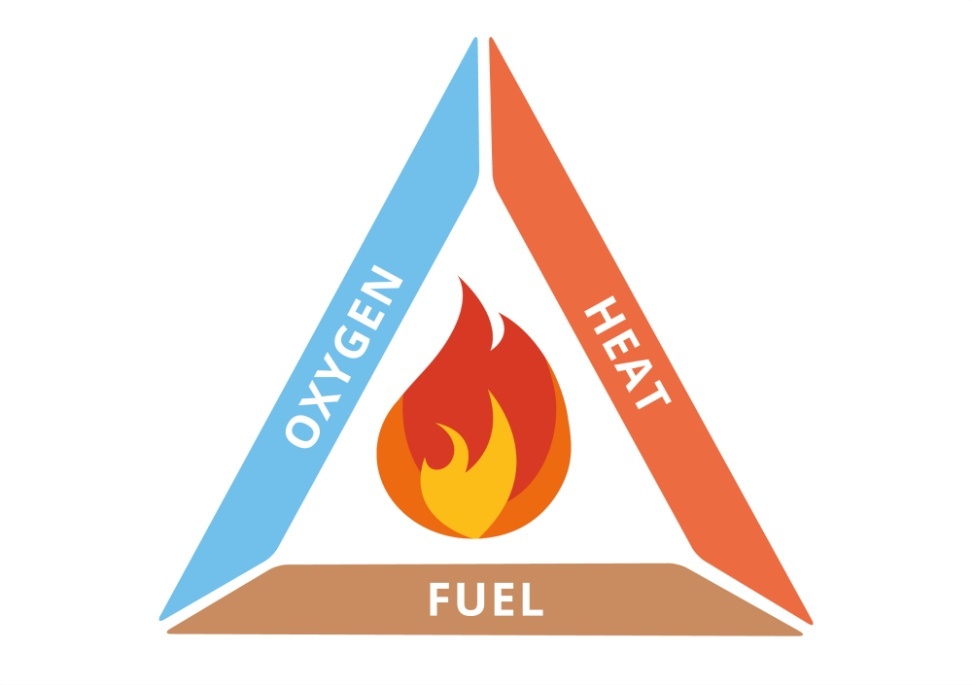Fire Blockade Extinguishing Grease Fire (Video)
A few weeks ago I did an article about innovation. I used Fire Blockade as an example. See that article below.
https://steemit.com/news/@traylorjonathan/the-importance-of-innovation-3-elements
As you saw in the video released, Blockade is a highly effective fire extinguishing formula. The cool thing about a product like this is the different applications it has. A few of them include: firefighters, chemical plants, oil rigs, and home safety.
Below is a home safety video demonstration.
In the above video you see the effectiveness of using a 16 oz canister on a grease fire.
As stated in my previous article, Blockade fights fire by removing two of the three elements of fire: fuel and heat. Traditional methods typically focus on oxygen only.

You can find out more about Blockade at https://www.responderfsp.com/.
Ohhh wow ~ ! This was the company you said that you were working on buddy. It can be use in huge fire?! 🤔🤔
Yes it's great for large and small. :)
This post in on fire..upvoted and resteemed. Kryptonia richardmacneil
Thanks! Appreciate that.
Good demonstration. But how do you remove the fuel?
This comment has received a 0.15 % upvote from @speedvoter thanks to: @sn0w-fox.
How does Fire Blockade change fuels or extinguish them?
To answer your question with a simple one line or one paragraph answer does not do the product justice nor does it explain the entirety of how Fire Blockade actually works.
We first go back to the Fire Triangle and look at what occurs or what is needed to ignite a fire
A Fuel , and ignition or heat source , and oxygen.
Unlike other material for extinguishment of fire which attack the presence of oxygen , Fire Blockade work on the fuel in the fire and the temperature of the ignition source or heat source present.
When an item burns or combust there is a point where the gassing of that particular fuel source ( wood, plastic, fiber, or chemical ) reaches an ideal mixture of oxygen that is present and the fuels equivalent gas production or other gasses being released by the fuel source to ignite when the heat source reaches sufficient temperature to ignite these materials .
During a fire , gaseous fuels are formed due to the process of pyrolysis. These gases will mix with other gases in the surrounding area ( many times atmospheric oxygen ) when the these gases mix or form at concentrations high enough to ignite the LEL ( Lower explosive Limit ) is reached and the heat source ignites these products. As the now flaming or ignited product burns more and more gases of pyrolysis are formed and the subsequent energy needed to burn these products usually decreases ( however there can also be enough of the gases present that one reaches what is called an UEL Upper Explosive limit, where no additional heat or no additional gasses can be added and there is no longer a flame . In other cases the reverse happens when the heat source begins to decline and the materials involved in combustion cannot be put in high enough concentrations that ignition is possible.
In the case of the addition of Fire Blockade its chemical reaction adds initial energy into the system which then requires the heat or ignition source to get hotter in order to reach the LEL as it is also going up. At the same time Fire Blockade is using its water component and penetrating agents to lower the heat or ignition point of the system and subsequently does not allow the gasses formed to go into concentrations high enough to ignite. You will see this happen when using Fire Blockade when there is an initial flash when the agents in Fire Blockade are introduced into the flames or area of combustion .
So as Fire Blockade is entered into a system it is adding additional compounds which create a need for a higher temperature of the gases to ignite and continue burning and at the same time we are taking heat and energy from the fuels causing a scenario where the products involved cannot reach a sufficient LEL .
In addition Fire Blockade acts as a flocculent by combining air borne particles that have not fully combusted and that supply added fuel to the fire scenario and drops them from air suspension .This is noted as the addition of Fire Blockade into a fire scenario will immediately change the dark black and gray smoke present into white steam and or clear line of site.
As a graph you would represent this by
Normal fire heat increases and gases present increase to add fuel to the fire Fuels is consumed by the ignition source as the ignition or heat increases from combustion products more gases in the atmosphere being released continue to burn never reaching UEL. The gases added by Fire Blockade act as a thermal ballast and helps to extract heat from the process
Cool, flamable houses for sure need some type of extinguisher that handles the different types of fires effectively
good information and helpfull, @sign4all
Quite interesting @traylorjonathan
You have received an upvote from @nicestbot. I am an automated curation bot trying to make minnows happy.
You got a 15.19% upvote from @buildawhale courtesy of @traylorjonathan!
If you believe this post is spam or abuse, please report it to our Discord #abuse channel.
If you want to support our Curation Digest or our Spam & Abuse prevention efforts, please vote @themarkymark as witness.
pretty cool
uvas from kryptonia spreading some love
Is good to konw this to prevent fire. Kryptonia @juancarlos2906